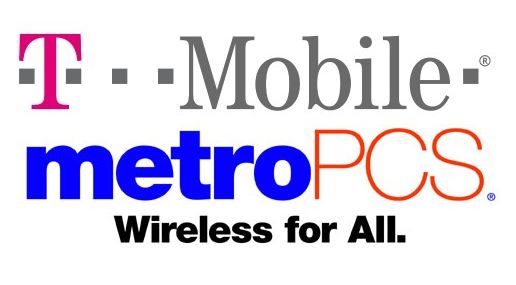T-Mobile and MetroPCS Agree to Merger
Sign up to receive The Snapshot, a free special dispatch from Laptop Mag, in your inbox.
You are now subscribed
Your newsletter sign-up was successful
The failed merger with AT&T hasn't stopped Deutsche Telekom's wheeling and a-dealing with T-Mobile, and this morning, the company announced that it struck a deal that should be much more palatable to government regulators: the boards of both T-Mobile and MetroPCS have unanimously agreed to a merger.
If finalized and approved, the deal would still leave four strong cellular carriers vying for the attention of U.S. shoppers, a key consideration as anti-competition concerns were the major hurdle in the aborted AT&T merger. The combined company will use the T-Mobile moniker, though interestingly, MetroPCS will actually be the acquiring party in a complex maneuver known as a "reverse merger."
According to the press release, MetroPCS will declare a 1 for 2 reverse stock split, dish out $1.5 billion in cold hard cash to its current stockholders, and then give Deutsche Telekom a controlling 74 percent stake in the company.
Why all the bureaucratic hoop-jumping? Deutsche Telekom has made no secret of the fact that it wants to exit the U.S. wireless market. By merging with MetroPCS, a publicly held company, Deutsche Telekom can slowly sell off its shares and gradually extricate itself from the business.
The two companies hope the merger will allow the combined company to both cover more of the U.S. geographically and ramp up its LTE deployment. Currently, T-Mobile uses GSM technology while MetroPCS runs on CDMA. The two technologies aren't compatible, but AllThingsD reports that the plan is to slowly shift customers to a combined CDMA-based 4G LTE network and eventually shutter the MetroPCS brand in 2015. Existing MetroPCS customers will be switched over to the combined network when they upgrade their current phones.
Combined, the new company will have 42.5 million subscribers; that's still good for fourth place in the U.S., but it closes the gap with third-place Sprint, which claimed 56 million subscribers at the end of the second quarter.
MetroPCS stockholders and government regulators still need to approve the merger. The companies expect to seal the deal in early 2013.
Sign up to receive The Snapshot, a free special dispatch from Laptop Mag, in your inbox.

